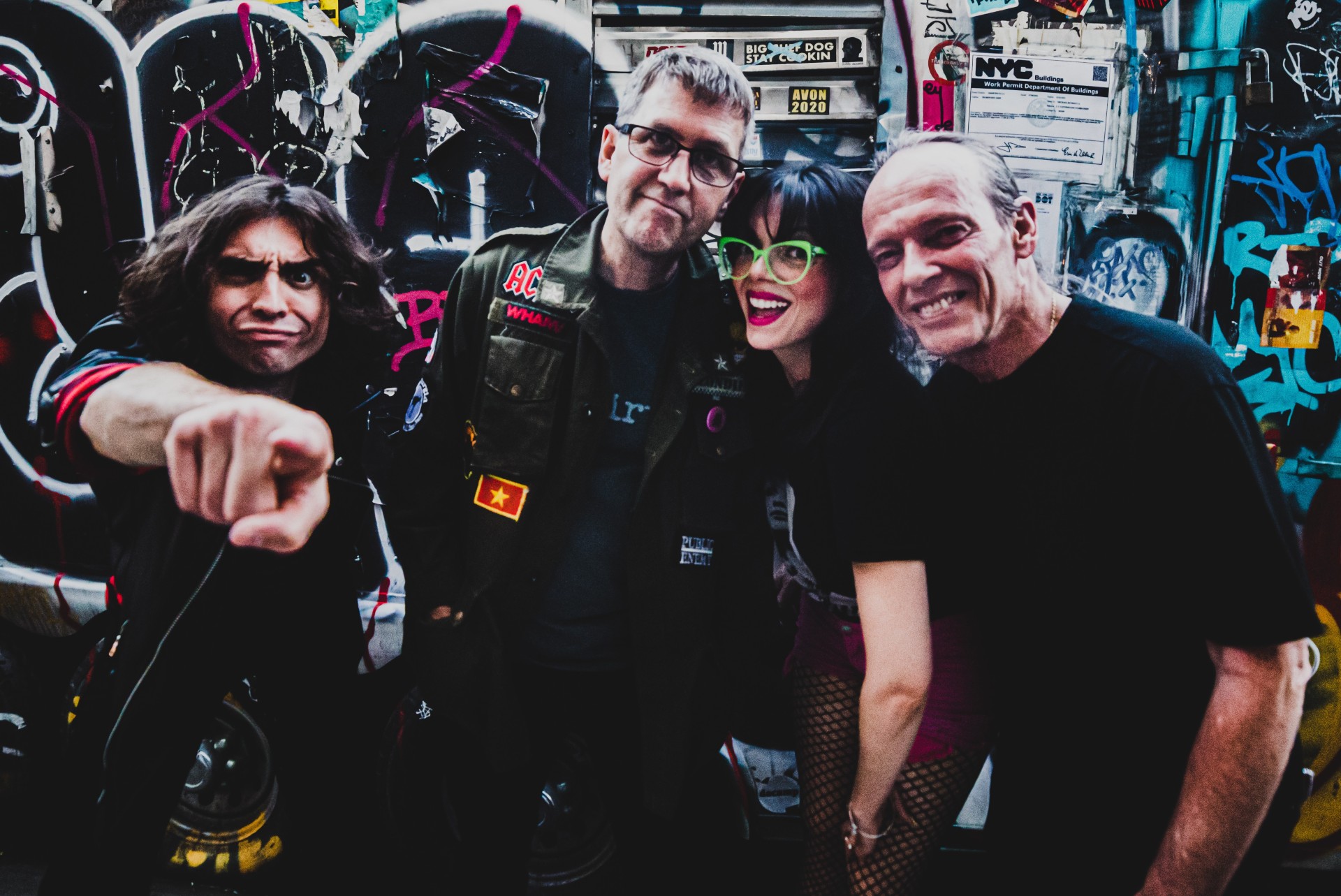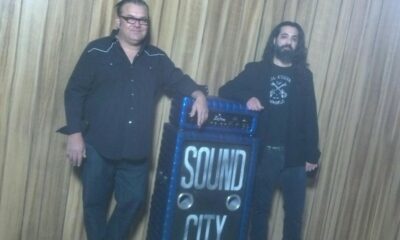Alternative/Rock
Alive In Barcelona Vocalist Matt Hoos Explains How Music Saved His Life
Continuing to support their emotive EP ‘Flatline’ (Smartpunk Records), Alive In Barcelona lead singer Matt Hoos joins us for a guest blog in which he discusses how music saved his life.
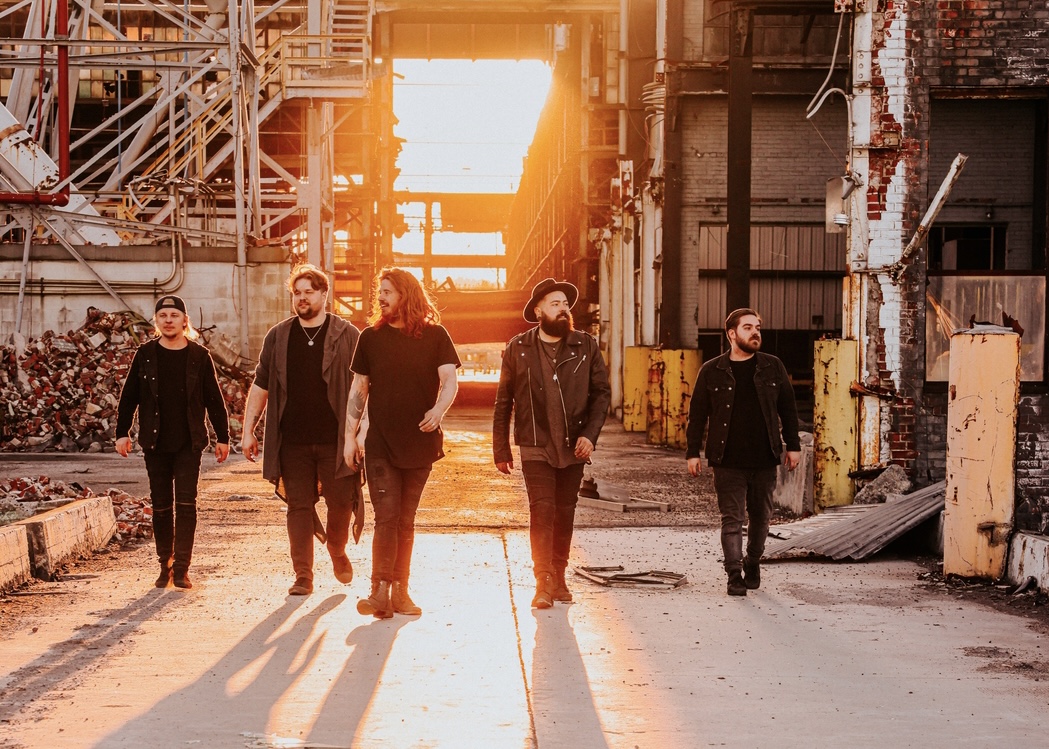
Few things can equal the emotional connection that listeners make with music. Depending on its sound, vibe, and message, some musicians are easier to connect with than others. Alive In Barcelona is one act that goes to a solid effort to bond with their fanbase as emotionally and intimately as possible, thanks to their heavy, melodic sound, as well as their lyrics which focus a lot on life’s struggles, grief, and emotional pain.
Their latest EP Flatine, released last month via Smartpunk Records, is full of heavy moments that fall in line with the quintet’s specific mission statement, which is to inspire hope in those who have none. They received help along the way from Landon Tewers, lead singer of The Plot In You, who co-wrote many of these songs along with the band.
The connection that Alive In Barcelona has formed with their audience has been helped by a lot of painful events that have happened in the lives of the members. They have lost many friends and family members, some to depression, substance abuse, and suicide. All of these events helped motivate them toward the mission statement and purpose they created for the band. They use their own stories of hardship, loss, and struggle to relate with their fans and ultimately create a culture of hope and perseverance.
Concerning these topics, band lead singer Matt Hoos has joined us today for a very special guest blog, in which he discusses the power of music, what he values most about it, and how it has ultimately saved his life.
How Music Saved My Life:
“‘Music saved my life…’ It’s something we have all said. From every musician to producer, to roadie, merch guy, and fan. ‘Music saved my life’ is a mantra for those of us that understand the connection between art and health.
For me, music was an escape from reality. it was an immersion into an artistic escape where I was in control of every feeling, emotion, and of course: the story. Not only was this new space fun and inventive, but little did I know, it was also therapeutic. When I would listen to music, I could always empathize with the artist. It was like I was there visiting their artistic creation actively in real-time, but it somehow felt introspective. By listening to others, I started to understand how these modern-day bards and minstrels could convey complex topics with just a few words and somehow find a way to punch me right in the heart.
I think that was the first time I discovered that I loved writing music.
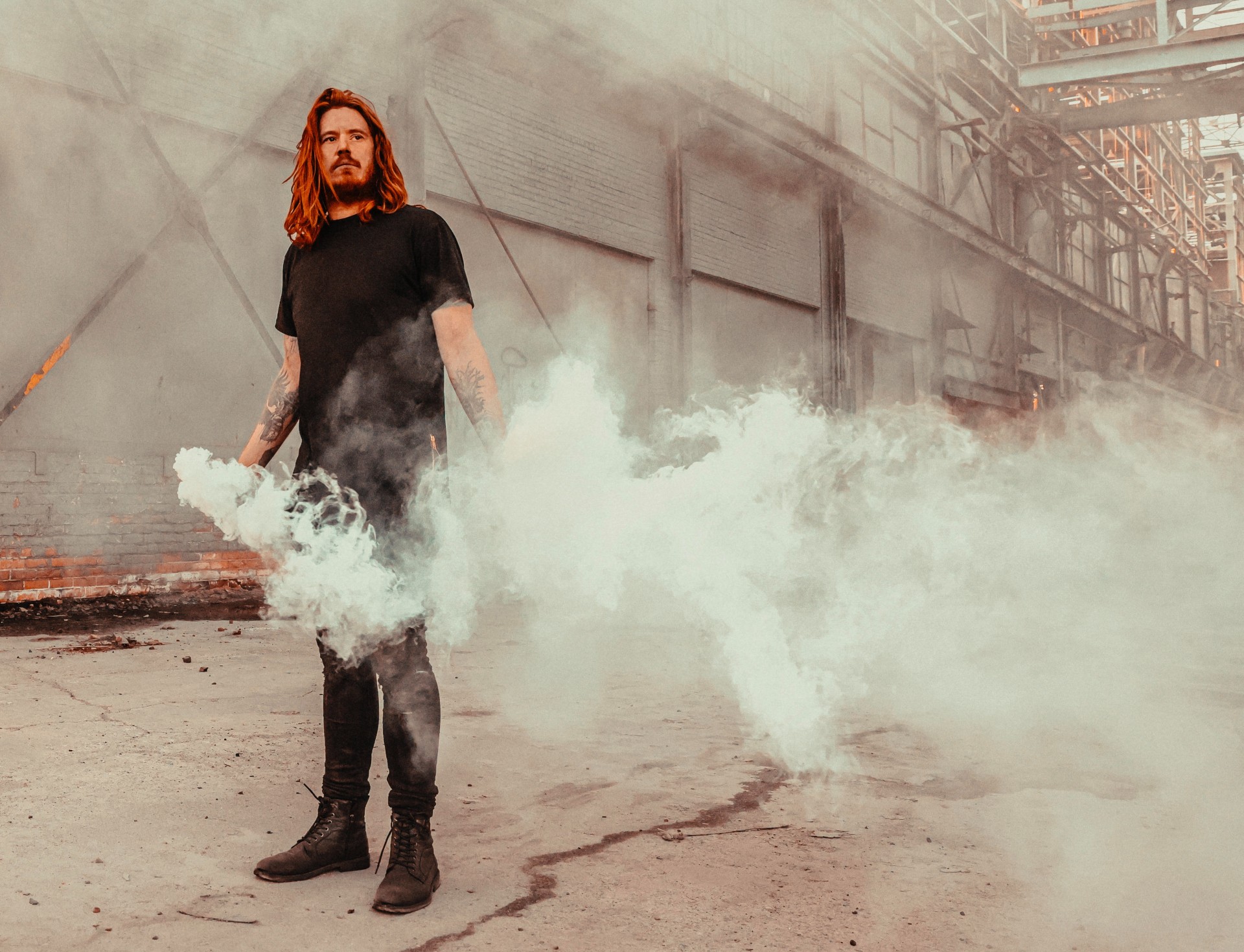
Alive In Barcelona vocalist Matt Hoos, photo by Alicia Hauff
I had always enjoyed writing poetry, especially about sad or dark topics, but there was something truly poetic about harnessing the raw emotion of the music; the tonal gravity that could bypass even the toughest emotional defenses. It wasn’t unique to any one genre, but I could feel the heartbreak in a punk rock song, the anger in a classical piece, or the joy in the blues. I noticed that sometimes it was the lyrics, but it was always ALWAYS the mood set by the music. I think that was the first time I thought I could help people in some crazy daydreamer way with music and I didn’t have to always do it with ‘happy’ music.
Personally, I believe very firmly that music, and art in general, is an essential part of convalescence. Many crutches leave you isolated or feeling temporarily gratified, but rarely leave you with a sense of lasting fulfillment. By creating art, you’re not only creating a token of lasting fulfillment, but you’re satisfying humanity’s intrinsic need to create.
Listening to music is transcendental, but therapy happens when you start to write your own. Writing music is not only a safe place where you can work out some of your most private thoughts. By expressing them in song, it forces you to isolate them, dwell on them, identify the emotion behind them, identify your response to them, look at them from the outside, and then refine the way you want the listener to feel when hearing about them. The process of writing a good song that listeners can relate to, requires you to work through it first. Rule number one of life is that you never face a demon without a guitar in your hand.
My band Alive In Barcelona recently released our Flatline EP via Smartpunk Records and it’s three heavy-hitting tracks that definitely live up to this message. I invite you to listen and join our story.”
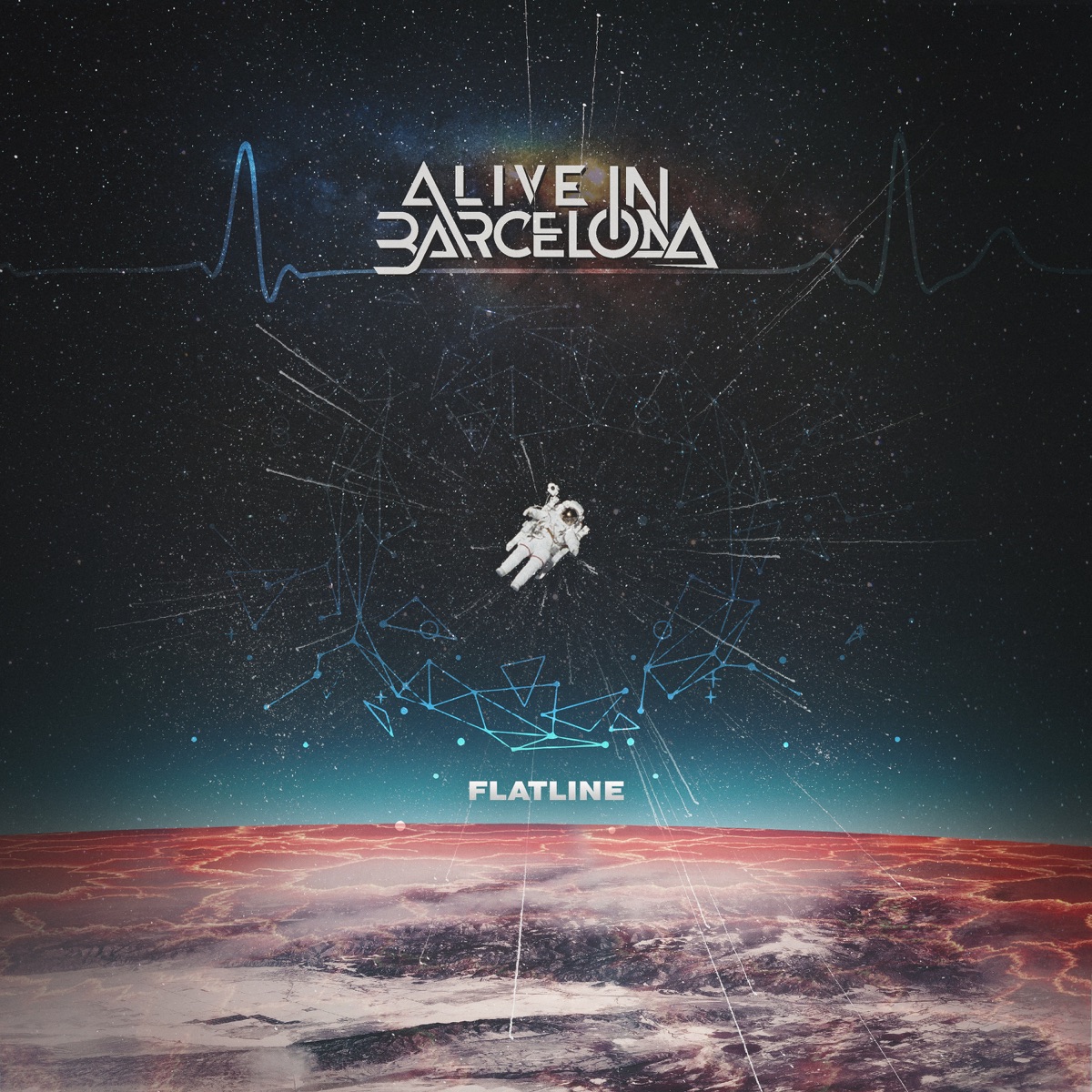
Artwork for the EP ‘Flatline’ by Alive In Barcelona
-

 Music7 days ago
Music7 days agoTake That (w/ Olly Murs) Kick Off Four-Night Leeds Stint with Hit-Laden Spectacular [Photos]
-

 Alternative/Rock23 hours ago
Alternative/Rock23 hours agoThe V13 Fix #011 w/ Microwave, Full Of Hell, Cold Years and more
-

 Alternative/Rock1 week ago
Alternative/Rock1 week agoThe V13 Fix #010 w/ High on Fire, NOFX, My Dying Bride and more
-

 Features7 days ago
Features7 days agoTour Diary: Gen & The Degenerates Party Their Way Across America
-

 Culture1 week ago
Culture1 week agoDan Carter & George Miller Chat Foodinati Live, Heavy Metal Charities and Pre-Gig Meals
-

 Music1 week ago
Music1 week agoReclusive Producer Stumbleine Premieres Beat-Driven New Single “Cinderhaze”
-

 Indie23 hours ago
Indie23 hours agoDeadset Premiere Music Video for Addiction-Inspired “Heavy Eyes” Single
-

 Alternative/Rock2 weeks ago
Alternative/Rock2 weeks agoThree Lefts and a Right Premiere Their Guitar-Driven Single “Lovulator”









